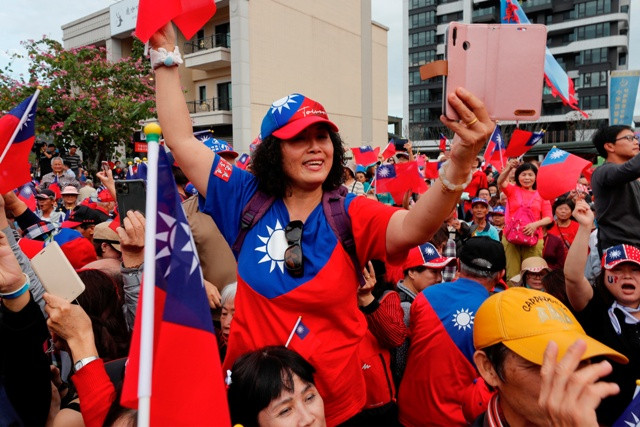Taiwanese from the world over are flying back home to participate in their 15th presidential and vice-presidential election on Saturday, January 11. Specifically, 5,328 overseas Taiwanese applied to cast vote in their 202 elections.
The number of overseas Taiwanese wanting to vote this year is said to have doubled compared to the 2016 elections. According to Taiwan's Overseas Community Affairs Council, 5,100 were qualified to vote.
The increase in number this year is notable because Taiwan has always forbidden absentee voting. Taiwanese have always been required to return to their county of origin, their place of birth or their place of registration to vote. This year's turn out of overseas Taiwanese coming home means they have a sense of urgency now than before.
The two people battling for the seat are incumbent Tsai Ing-wen of the Democratic Progressive Party and Han Kuo-yo of the Kuomintang or KMT. The two offer contradicting platforms of all important economic, security, and social issues.
Of the most contradicting views is their attitude toward China policy. Tsai wants a self-independent Taiwan while Han is pushing unity between Taipei and Beijing.
For the past four years of Tsai's leadership, seven diplomatic allies for Taiwan have switched loyalty to Beijing. Still, the woman president seems to have the hearts of the majority of voters.
On the other hand, given an economic perspective, Tsai plans to boost Taiwan's independence by deepening economic links to countries in Southeast Asia, as well as Australia and New Zealand. This plan struck economists as a long shot given that Taiwan has strong and well-established economic ties with China.
China and Taiwan, despite disagreements on government policy, has always been each other's, top trading partner. The trade between the two totaled $226 billion in 2018 alone.
Taiwanese investors are also fond of putting money in China. The latter is in fact dubbed as Taiwan's "favorite investment destination." Taiwan companies spent more than $100 billion in different investments in China.
Tourism is also one aspect where China and Taiwan have favorable partnerships. In 2019, more than 3.4 million people traveled between Fujian Province and Taiwan. This was a 17% increase compared to 2018, according to data from Xiamen Entry-Exit Clearance Station.
If Tsai wins, Taiwan is expected to lean toward countries in the West. Political observers expect Taiwan, under her rule, will continue to strengthen relations with the United States.
Han, on the other hand, plans to boost Taiwan's economy by increasing economic ties with China.






